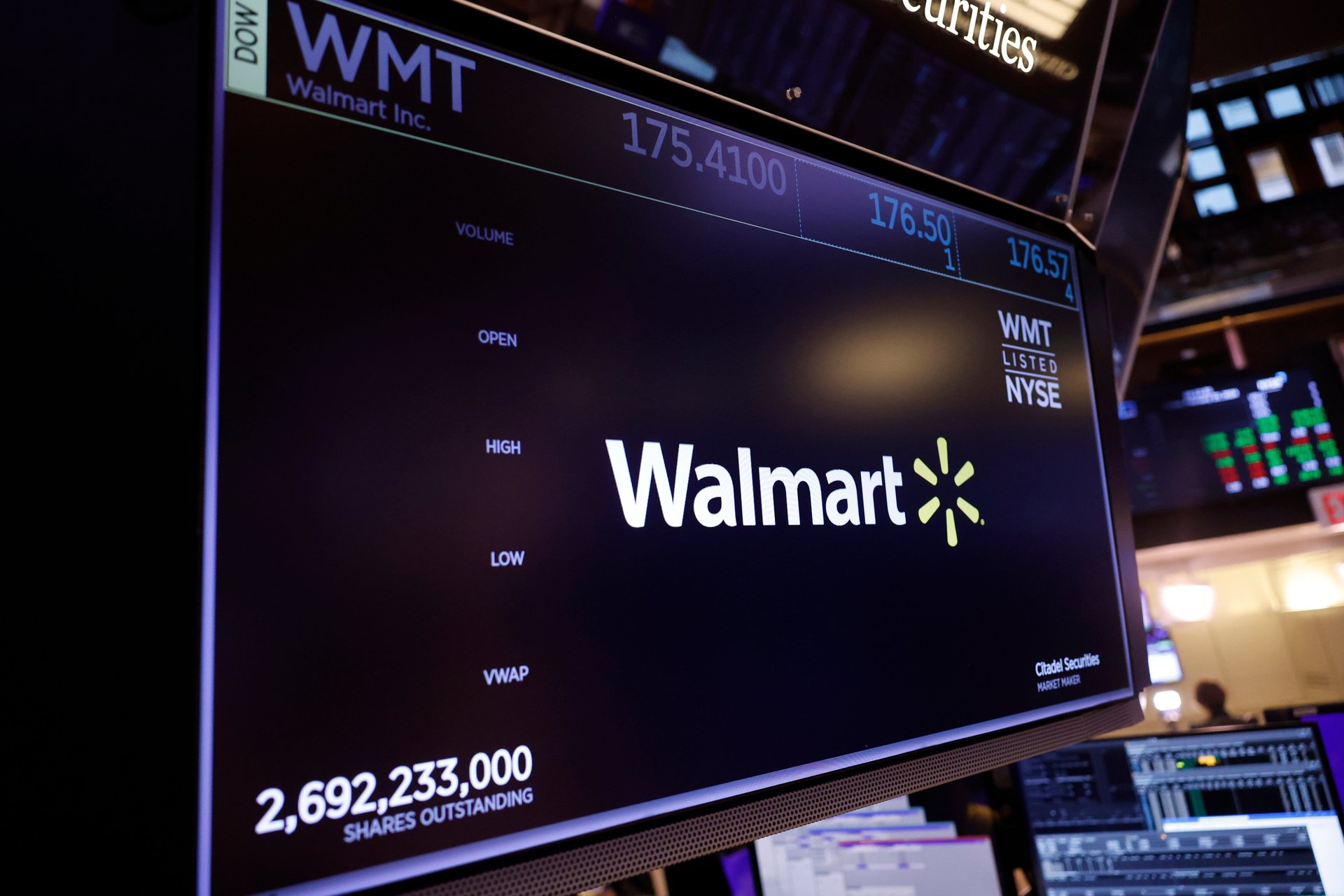Trump said Walmart earned billions more than expected. Here's why that's preposterous
A new claim by the president doesn’t just miss the mark. It ignores how Walmart's entire business model works

President Donald Trump claimed over the weekend that Walmart (WMT) made “BILLIONS OF DOLLARS” more than expected last year. That’s not just wrong — it’s preposterous on multiple levels. In fact, you could say Walmart is one of the least likely companies in the world to deliver surprise windfalls.
Here’s a quick explainer why.
Walmart is a mature, ultra-low-margin business
Because shopping — especially grocery shopping — is so familiar to consumers, it’s easy to assume the business is straightforward. But in reality, it’s cutthroat, crowded, and notoriously low-margin. On the face of it, in fact, the grocery business is one of the least attractive in the world, precisely because it is so unlikely to deliver huge profits.
No company illustrates that better than Walmart, which built its empire by mastering scale, seeing its greatest years of growth through the 1980s and 1990s. It overtook A&P to become America’s biggest retailer in 1990, then the world’s largest by the mid-1990s, by focusing on “everyday low prices” — losing money on some items and earning just pennies on others, but making it up on volume. Since the company matured post-2000, its gains have largely been driven by increasing operating efficiency, growing market share, and e-commerce expansion.
The underlying picture has hardly changed, though. Today, Walmart brings in more than $600 billion in annual revenue, with profit margins that typically hover around just 2.5%. That means for every dollar it earns, only a couple cents drop to the bottom line, by design.
That’s not a bug. It’s a feature.
Walmart earnings are closely forecasted and rarely surprise. 2024 was no different
Because it’s the world’s largest retailer by revenue and the greatest corporate bellwether of consumer spending, Walmart is among the most closely followed and tracked companies on the planet. A virtual army of Wall Street analysts and journalists hover over its every move. Walmart does sometimes exceed earnings expectations, as many companies do, but often times, such “surprises” are already baked in because so much research and speculation has been posted by the time the company publishes its results.
By the same token, claims about its finances are exceedingly easy to fact-check. And in this case, the suggestion that it posted billions more than expected in 2024 (its fiscal year 2025) is neither supported by the company’s own financial filings or by Wall Street research.
In fact, over the last three fiscal years, Walmart’s growth has been steady and tightly aligned with Wall Street expectations. Looking to FY2025 in particular, Walmart posted solid results, with total revenue rising 5.1% year-over-year to $681 billion and operating income increasing 8.6% to $29.3 billion. Growth was largely driven by continued gains in grocery and general merchandise, steady expansion in eCommerce and improved gross margins, particularly in the U.S. market. Walmart U.S. comparable sales rose 4.5%, led by increased transactions and a higher average ticket. Adjusted earnings per share rose to $2.51.
All that adds up to more of the same and the hallmarks of Walmart’s well-known, widely-followed business: stable execution, predictability, high volumes, low margins.
The bottom line? These results were in line with guidance Walmart had already issued. Likewise, analysts had largely forecasted both the growth and the tailwinds. EPS were no great surprise. If Walmart had delivered stunning multi-billion-dollar upside versus expectations, it would’ve dominated headlines — and it didn’t.
No shock, no blowout
Walmart’s strong Q1 performance this year was driven by modest digital growth and grocery share gains, especially from higher-income shoppers trading down in an uncertain economy. In other words, textbook Walmart — sturdy, predictable, not flashy. No tech-style earnings blowout.
Trump’s comments come amid public tensions between the White House and Walmart over price hikes driven by tariffs.
“Walmart should STOP trying to blame Tariffs as the reason for raising prices throughout the chain,” Trump said Saturday on his social media site Truth Social. “Walmart made BILLIONS OF DOLLARS last year, far more than expected. Between Walmart and China they should, as is said, ‘EAT THE TARIFFS,’ and not charge valued customers ANYTHING. I’ll be watching, and so will your customers!!!”
Treasury Secretary Bessent has claimed Walmart agreed to absorb some costs, but reporting suggests no shift in company policy.
All of this raises a more troubling question: Is the White House distorting basic financial facts to shift blame for inflation? If so, it risks undercutting public understanding of what’s actually driving prices — and scapegoating a company that, for decades, helped keep them low.
